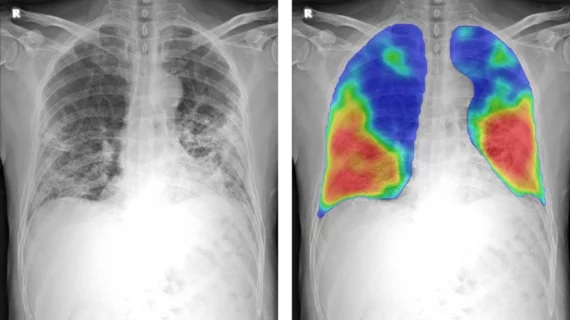AI imaging solution scans chest x-rays for signs of COVID-19
Thirona and Delft Imaging, two imaging technology companies based out of the Netherlands, have developed an AI software solution that assesses chest x-rays for signs of COVID-19.
The software, CAD4COVID, evaluates chest x-ray results and generates a score from 0 to 100 based on abnormalities that may be related to the virus. It is based on Thirona and Delft Imaging’s CAD4TB solution, which assesses chest x-rays for signs of tuberculosis.
“Tuberculosis still takes the lives of 1.6 million people every year,” Guido Geerts, CEO of Delft Imaging and Thirona, said in a statement. “It is incredibly challenging to tackle, especially as it is most active in low-resource settings where there is limited infrastructure. Our breadth of experience in such settings has made us very concerned about the implications that COVID-19 can have on countries where healthcare infrastructure is already under pressure.”
The solution is currently free to use, and representatives from the two companies emphasized that its effectiveness is still being validated. At this stage, it is to be used for research purposes and not as a diagnostic tool.
“CAD4COVID will be updated and optimized on a continuous basis,” according to the Thirona website. “For this reason, we welcome any support that can be provided. By using CAD4COVID, your data will be processed for the purpose of analyzing the COVID-19 cases.”

